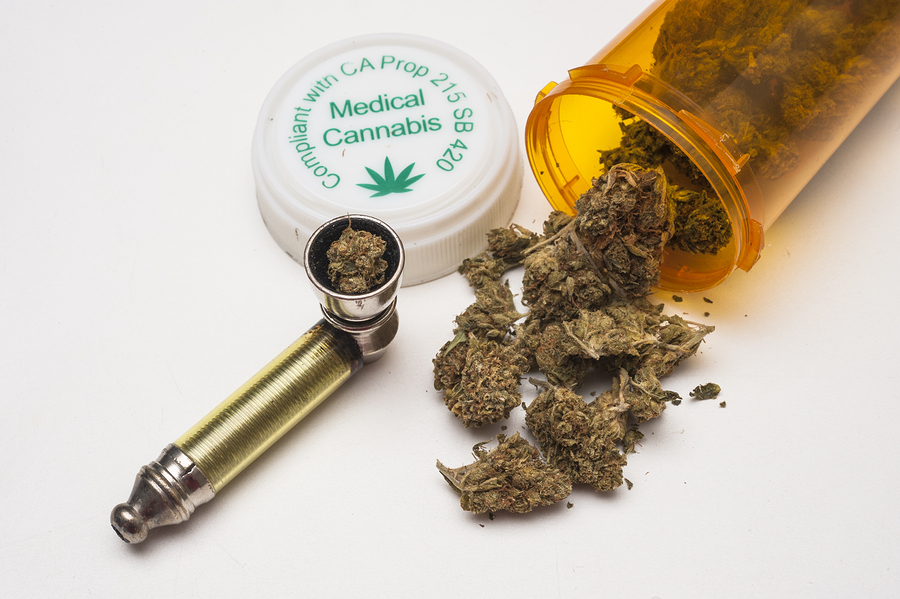Medical Marijuana Will Not Cure the Opioid Crisis
/By Roger Chriss, Columnist
There is a strong push underway to utilize medical marijuana as an alternative to opioid pain medications.
“There’s a large group of patients who have chronic pain who rely on opioids,” Dr. Charles Bush-Joseph recently told the Chicago Tribune. “Those are the patients who would benefit from medical cannabis.”
Indeed, medical marijuana and synthetic forms of cannabis are showing promise in treating chronic pain and related disorders. Recent research has shown that the marijuana-based medication dronabinol is effective in the management of neuropathy in multiple sclerosis. Similarly, another novel cannabidiol made by GW Pharmaceuticals has been found to help manage treatment-resistant epilepsy.
But while medical marijuana is showing potential in treating many medical problems -- including chronic pain conditions -- it will not have a significant impact on the rate of opioid addiction or overdoses.
Media reports from outlets like Big Think erroneously associate the opioid crisis with chronic pain management and misinterpret recent studies on opioid overdose rates in states with legal medical cannabis.
In fact, chronic pain management is not a significant causal factor in the opioid crisis. The National Institute on Drug Abuse estimates that between 8 and 12 percent of people on long-term opioid therapy develop some form of opioid use disorder. A Cochrane review put the number even lower – with less than 1% of chronic pain patients becoming addicted.
In other words, people who need opioid pain medication are rarely the ones who become addicted and reports of doctor-shopping pain patients are greatly exaggerated. It is also clear from recent reports by the CDC that the prescribing of opioid pain medication has been dropping steadily since 2010 and that the main drivers of the opioid crisis are now heroin and illicit fentanyl.
Moreover, research only shows an association, not a causal relation, between legal medical cannabis and opioid overdose rates. A recent study from the University of New Mexico showed that people with chronic musculoskeletal pain preferentially used medical cannabis over opioid analgesics. But this result is only preliminary and small-scale, and is unrelated to opioid addiction or overdose.
A 2014 study in JAMA also found an association between medical marijuana laws and a decline in opioid overdose mortality rates. But the authors of the study were careful to note that “our findings apply to states that passed medical cannabis laws during the study period and the association between future laws and opioid analgesic overdose mortality may differ.”
Recent data from Colorado, which legalized medical cannabis in 2000, shows the number of newborns in the state addicted to opioids jumped 83 percent from 2010 to 2015, a result that suggests rising levels of opioid use. Similarly, significant increases in fatal overdoses involving opioids are emerging in Washington state, where medical marijuana has been legal since 1998.
Opioid overdoses are also increasing in other states that recently legalized cannabis, although the increase is most likely caused by heroin and illicit fentanyl, not opioid pain medication.
Medical cannabis has been mentioned as potentially helpful in treating opioid addiction. But a small new observational study from Washington State University concludes that cannabis use by patients in an addiction treatment program may actually strengthen the relationship between pain, depression and anxiety.
"For people who are using cannabis the most, they have a very strong relationship between pain and mood symptoms, and that's not necessarily the pattern you'd want to see," said lead researcher Marian Wilson, PhD, of the Washington State University College of Nursing. "You would hope, if cannabis is helpful, the more they use it the fewer symptoms they'd see."
About two-thirds of the 150 patients surveyed by Wilson said they had used marijuana in the past month.
"Some are admitting they use it just for recreation purposes, but a large number are saying they use it to help with pain, sleep, and their mood," Wilson said. "We don't have evidence with this study that cannabis is helping with those issues."
None of this is meant to downplay the potential of cannabis in pain management or other areas of medicine. Medical cannabis has long been recognized for its use in treating chemotherapy-induced nausea, in loss of appetite due to end-stage cancer, and in treating pain in disorders like multiple sclerosis. More research will help clarify what else medical cannabis may be able to do.
But the legalization of medical cannabis is not going to cure the opioid crisis. Instead, the excessive and uncritical enthusiasm for it in some recent media reports and research publications is creating unrealistic expectations. These expectations could be used to justify reductions in pain medications that are working, complicating the lives of people with intractable pain disorders for no good reason.
If medical cannabis works, let's use it. But let’s make sure we’re using it for the right reasons.
Roger Chriss lives with Ehlers Danlos syndrome and is a proud member of the Ehlers-Danlos Society. Roger is a technical consultant in Washington state, where he specializes in mathematics and research.
The information in this column should not be considered as professional medical advice, diagnosis or treatment. It is for informational purposes only and represents the author’s opinions alone. It does not inherently express or reflect the views, opinions and/or positions of Pain News Network.





